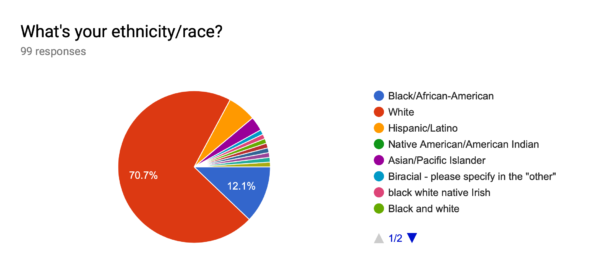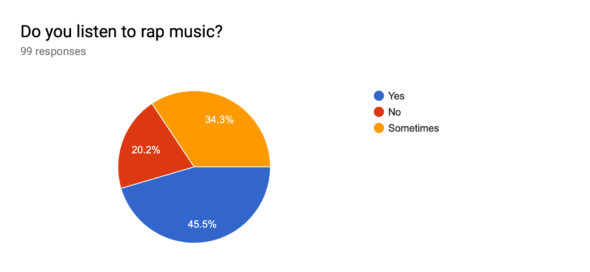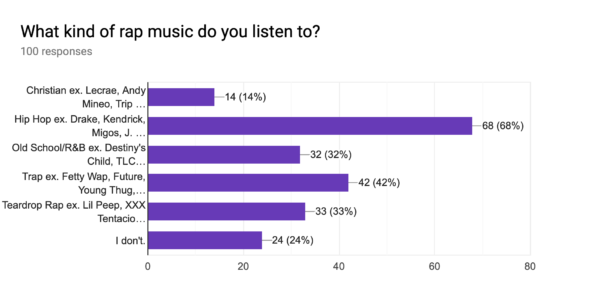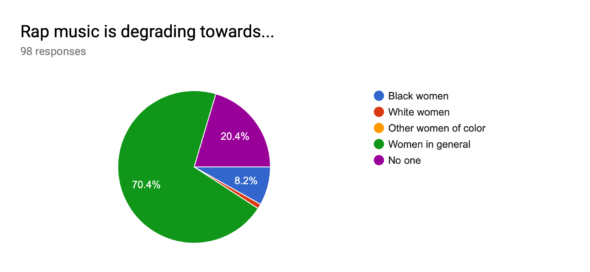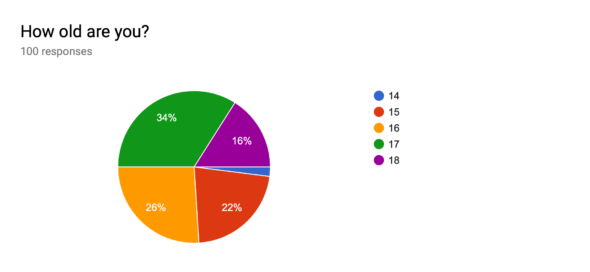How does rap music shape our understanding of gender?
BY DANY ROBINSON, GUEST WRITER
One of the most popular genres of music is Rap/Hip-Hop. Rap is a form of musical expression that incorporates rhyme, rhythm, and “street” vernacular. Majority of today’s rappers rap about: money, cars, drugs, fame and success, pain, and women. For years now, rappers have been rapping about women, and specifically black women, using vulgar descriptions about them. And majority of the rappers who rap about black women in a demeaning way, are black themselves. Besides ethnicity of the rapper, rap music contains negative content that is degrading and demeaning towards black women and rap listeners need to be aware of this issue.
Arguing against rap music being degrading towards black women is a difficult debate. Is it degrading or is it a form of art? The answer is both. For years, rap music has been a part of black culture to express the truth and experiences of being black. Black people in America have forever been oppressed and discriminated against. They were forced into slavery and then forced into underdeveloped neighbors, and given low-paying jobs, and inadequate education. Living under these conditions takes a huge toll on one’s mental and physical health. This oppressive cycle has caused black people to act in a way where they believe they will be heard. Obviously, everyone deals with this kind of treatment differently, but in this case, black rappers (who have more than likely experienced these conditions), have written their pain through their music. Writers, Juliana Pache and Lakin Starling from the Fader discussed the ways in which this behavior is supported in the media, “In a society where black men have little power and must struggle simply to survive, the idea seems to be that if black men can’t rule the world, they can at least rule “their” women. The sexual overtones of the music are symptomatic of the state many young black men find themselves in. Along with fast cars, fast money and the fast life go “fast” women” (Pache and Starling). Black male rappers feel the need to prove themselves, so they rap about their experiences and how they feel. Rap is a form of art, and art is personal. Most rappers write about personal things and this could, very well, be one of the reasons why they write such vulgar words. Another reason why might just be the fame and success that these rappers receive. Rappers will write whatever sells. If they’re getting money, they don’t care what they write about and who it might be impacting.
Writer Neila Cairnduff from the Maine Public writes about this issue, “This issue however, has worsened due to recent popularity of rap, especially because the main demographic is young developing males who are being fed this mindset at a vulnerable age. For example, the most obvious problem with this genre is that women are hardly ever referred to as women. It’s always terms like “b*tch,” “whore,” “ho,” or “slut” (Cairnduff). This negative language is constantly being filtered through the minds of young listeners, who then, are being assured that these words are acceptable to use to describe black women. Not only do these lyrics create a bad influence on young people, they also portray black women in a negative way. Black women have always been portrayed negatively in society and this just feeds that fire. People are not born racist or born with preconceptions on another race, all of it is taught. Listeners of this music are susceptible to be influenced by these rap lyrics, which then causes negative connotations towards black women. Some would argue that rap music doesn’t only degrade black women but degrades all women. In multiple situations, this is correct. But more times than not, white women are praised in the media, while black women are disrespected and often receive demeaning treatment from the white community (The Fader). By objectifying black women, these rappers are trying to empower themselves.
Finding a solution to this issue can be very difficult, as it is hard to argue between morality and art. Persuading people to stop listening to misogynistic rap music or get rappers to not rap about black women, is an unrealistic goal. It’s easier to start small, then hopefully impact a larger audience. Which is why I decided to send out a survey to the student body at MA, just to see how this issue affected the target audience or if it even affected them at all. The results were as expected (view data). Although, I was a bit surprised by the written responses; majority of students had a lot to say about the issue and actually expanded on their answers. I would say my solution worked because I got my message out there and people thought about it and reflected on it, and that was my goal.
Although there are justifications as to why rappers rap about black women in demeaning ways, it doesn’t deny the fact that is still has a negative effect on black women and rap listeners in general. The lyric content can be an expression of culture and convey powerful messages while also being vulgar and degrading. It can create a bad influence on young listeners and makes it seem like vulgar words are okay to use. Rap music is indeed an expression of art, but listeners should be aware of what they are listening to and how it may be affecting others.